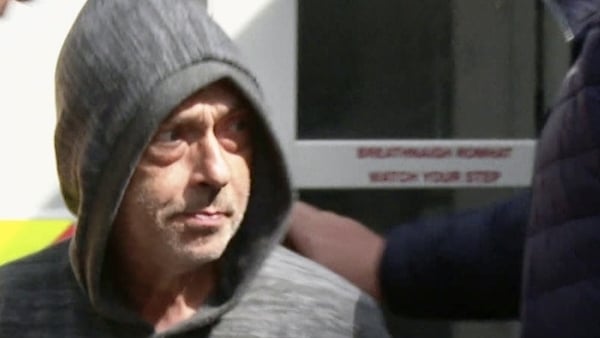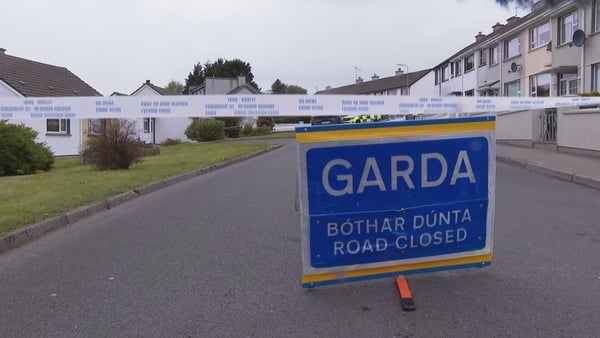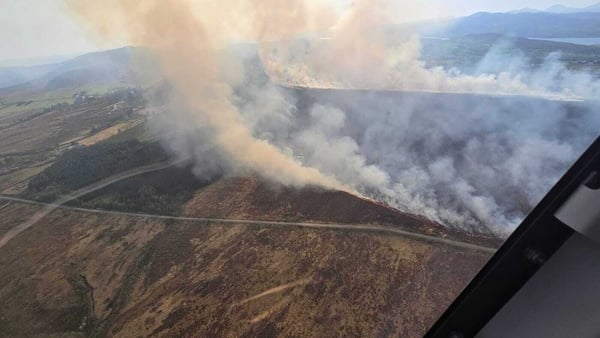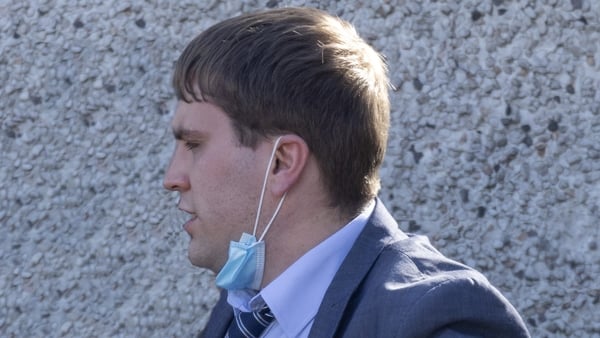Fish processors in Killybegs, Co Donegal, have called for changes in the weighing of fish landed in the port after 750 tonnes of blue whiting destined for human consumption in the west African market was processed for fish meal.
The Irish trawler, which landed the catch, was subject to a controlled weighting on Friday as part of a monitored landing.
Irish Fish Producers Organisation CEO Aodh O'Donnell said the monitoring was carried out in a manner that made the fish unfit for human consumption.
"Blue whiting is a very soft and perishable species. The cold chain must be maintained due to quality and suitability for food production."
Mr O'Donnell said the dewatering process during the monitored landing at the harbour impairs the quality for food production.
The fish had been pre-ordered for food production. A decision was subsequently made to process it for fish meal.
A minimum of 5% of catches are randomly selected for harbourside monitoring by the Sea-Fisheries Protection Authority (SFPA).
"The industry is committed to best practice and sustainability," Mr O'Donnell said.
"The reality is that in-factory monitoring provides a greater and higher standard of monitoring than pier side monitoring.
"The industry in this instance has offered to have the monitored weighing of the fish done under camera with in-person attendance by the control authority."

Irish Fish Processors and Exporters Association CEO Brendan Byrne said: "It is morally wrong to be diverting perfectly good fish that is fit for human consumption into fish meal.
"There are two options now; that we get a clear policy directive from the Government that protects the blue whiting stock and how to process it.
"In the absence of that, we can invite the SFPA on a 24/7 basis to come to the factories and carry out monitoring and supervising of all landings into Irish processing. That would give a new benchmark of the highest possible standard," Mr Byrne added.
Local Fianna Fáil TD Pat the Cope Gallagher said he was appalled at the situation that arose in Killybegs that "750 tonnes that could’ve been weighed in the factories went to fish meal".
"If those fish are weighed on the pier; it means they’re going out of the boats into ambient temperatures and then they’re going to fish meal."
We need your consent to load this rte-player contentWe use rte-player to manage extra content that can set cookies on your device and collect data about your activity. Please review their details and accept them to load the content.Manage Preferences
Operation complied with rules in place - SFPA
In a statement, an SFPA spokesperson said the authority was notified of a fishing vessel that was due to land in Killybegs with over 700 tonnes of blue whiting last Friday.
They said: "Under EU regulation and the Ireland’s EU Commission-approved Control Plan, a small proportion of landings (one in 20) of bulk pelagic fish must be dewatered and weighed on the pier side under the supervision of officers of the SFPA.
"The terms of the Control Plan allow for the other 19 of 20 landings to be weighed in the factory without supervision of SFPA officers.
"If Ireland did not have a Control Plan approved by the EU Commission in place, the default position is that 100% of bulk pelagic landings, whether for consumption or fish meal, would have to be dewatered and weighed on the pier side before transport to a processing factory."
The SFPA spokesperson said the vessel owner was notified in advance that it had been selected for a controlled supervised weighing in accordance with the regulation.
"Ultimately, the vessel owner made the decision that the fish onboard would be directed to go for fish meal rather than human consumption.
"The blue whiting was being transported to a fish meal processing factory which does not have a permit, under the Control Plan, to weigh after transport and accordingly the entire landing was put through a dewatering device and weighed on the pier side before being transported to the fish meal processing factory".
The spokesperson concluded that "in either case, (human consumption or fish meal) it is the operator’s responsibility to have appropriate dewatering equipment in place so as to facilitate a controlled supervised weighing."
Fine Gael Senator Manus Boyle said the 750 tonnes were destined for west Africa - a new market that has been in development over the past 10 years.
"I’ve no problem with fish meal. We’re lucky to have a good fish meal processing factory in Killybegs, but when it’s a good product, it’s a mortal sin, to be honest.
"Every monitor should be done in the factory. There’s no reason it shouldn’t be done in the factories. The camera systems are installed," Senator Boyle said.
Mr Byrne called on the Government to immediately address the situation and put in place a policy that avoids a reccurence.
"Fishing in Ireland is under significant pressure at present and nonsensical interventions such as witnessed over the past weekend need to be dealt with," he added.
A spokesperson for the Department of Agriculture, Food and the Marine said: "Under the Sea Fisheries and Maritime Jurisdiction Act, 2006, operational issues concerning sea fisheries control are, as a matter of law, exclusively for the Sea Fisheries Protection Authority and the Naval Service".
They said Minister of State for the Marine Timmy Dooley is precluded from getting involved in operational matters including those in relation to law enforcement.
They added, however, "Minister Dooley has requested that the SFPA continue to engage directly with this operator and collectively with the industry to ensure the successful implementation of Irelands Control Plan".
They said the Minister has a scheduled meeting with the SFPA as part of his initial engagement with key stakeholders including agencies under the Departments remit.
"Separately, the Minister will be visiting Killybegs fishery harbour next week and will engage with the fishing industry including processors and fishermen to see at first-hand their concerns," the spokesperson added.






